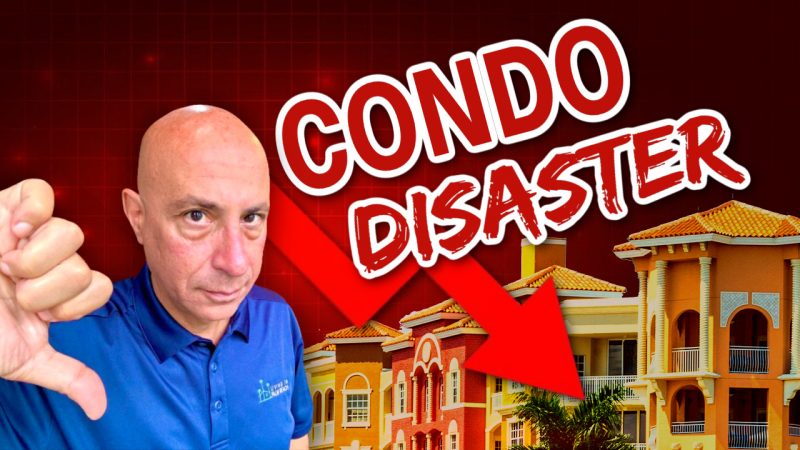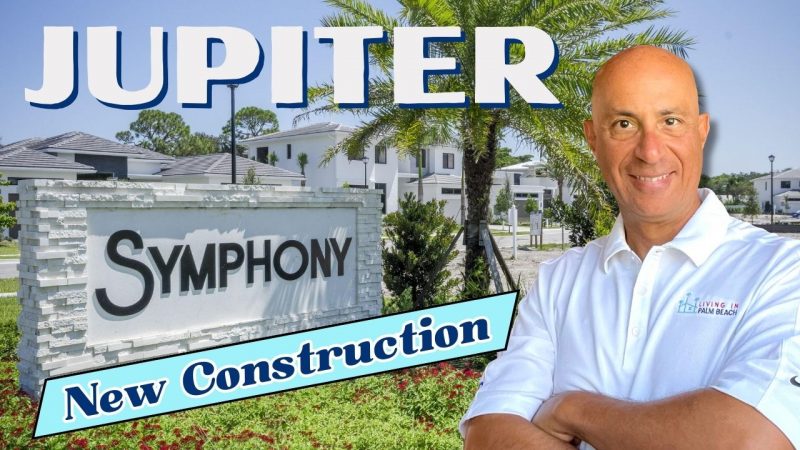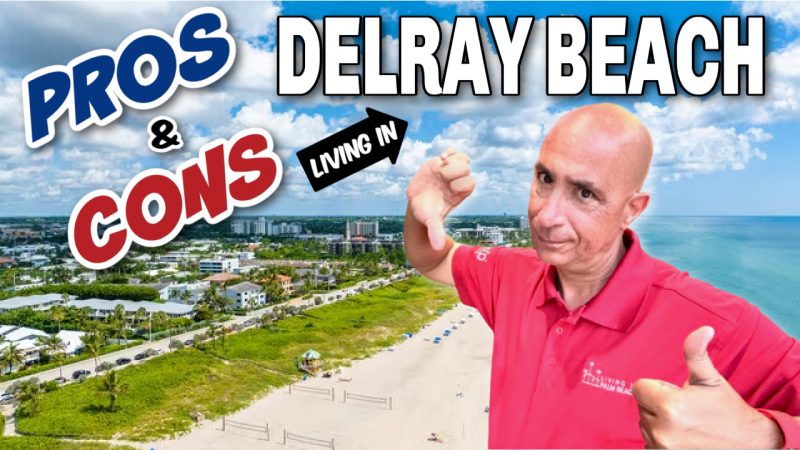
FLORIDA's CONDO DISASTER - Our WARNING Was Spot On!
If you’re considering buying a condo in Florida, we’re here to share some crucial insights. Florida’s Condo Disaster serves as a stark reminder of the complexities involved in condo ownership, and our prior warning has proven to be eerily prescient. So, buckle up, and let’s dive into the unique considerations that come with condo ownership in the aftermath of Florida’s condo disaster – our warning was spot on!
The Past Unveiled: Condos in South Florida
Let’s rewind the clock and take a stroll through history. South Florida, especially the barrier islands along the east and west coasts, has been a haven for condos. Affordable, built in the ’70s, ’80s, and ’90s, they once offered a budget-friendly alternative to single-family homes. Condos like Halton Place, Dorchester, and Camos lined the coast, enticing buyers with their charm and relatively low prices.
The Champlain Towers Wake-Up Call
Fast forward to two years ago, when the collapse of Champlain Towers in Surfside, North Miami Beach, shook the condo landscape. In a video titled “Go Buy Palm Beach Condos,” I highlighted the risks, emphasizing the need for attention to structural integrity, fees, and outdated regulations. It took this tragic event for the issues raised in that video to gain widespread attention.
The Evolving Scenario: Fees and Assessments
In recent times, we’ve witnessed significant changes in the condo scene. Families are grappling with soaring condo association fees, sometimes escalating by up to 200%. Special assessments, a financial burden triggered by unexpected expenses, have become more common. The aftermath of Champlain Towers has prompted stricter regulations, affecting the financial dynamics of condo living.
Insurance Dilemma: The Fallout from Fraud
Insurance has emerged as a critical concern. Fraudulent claims and insurance carriers exiting the state have led to a surge in insurance rates, sometimes doubling or more. This situation impacts condo owners, as the association’s insurance covers everything outside the four walls. The new regulations demand more rigorous inspections, signaling a shift towards a safer and more transparent condo environment.
The Condo Act of 2022: Reserves and Regulations
In 2022, the Condo Act brought about significant changes. Condo associations are now mandated to accumulate reserves, addressing one of the root issues. The act also tightened regulations on inspections, increasing frequency and ensuring structural integrity. Associations can no longer vote against building reserves, a crucial step in fortifying the financial stability of these communities.
Choosing Wisely: Considerations for Condo Buyers
If you’re considering a condo in South Florida, whether in Palm Beach or beyond, consider these vital factors:
Reserves and Financial Health: Scrutinize the condo’s financial health, ensuring adequate reserves and a history of responsible financial management.
Insurance Landscape: Understand the insurance scenario, especially how it impacts your rates and what the association covers.
Association Meetings: Gauge the dynamics of association meetings. Well-handled associations ensure smoother living experiences for residents.
Age of the Condo: Older condos may pose higher risks. Check inspection schedules, recertification periods, and adherence to updated regulations.
We Love South Florida!
If you need to buy or sell a home in South Florida, please click here for our contact page or click this link to schedule a Zoom or phone call with me. Our specialty is knowing the South Florida area so you don’t have to!
Also, click here for our YouTube page. Lots of great videos there.
Thanks for visiting our website!



